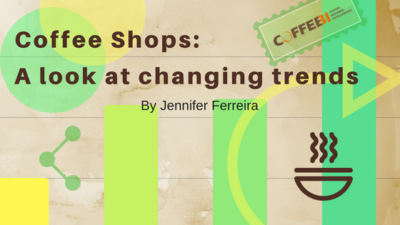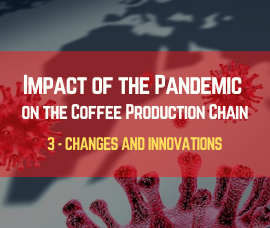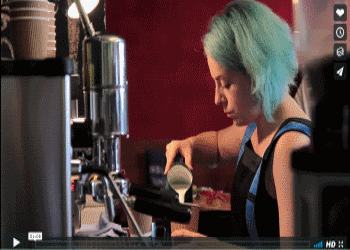Coffee Shops: A Look at Changing Trends
One of the leading figures in the coffee industry, James Hoffman, co-founder of Square Mile Coffee Roasters, has often thought about the changes taking place in the coffee industry, and has made predictions about what might happen in the future, on his blog Jim Seven.
In March 2018, James published a video on his youtube channel of his talk from a Square Mile Coffee Roasters wholesale event entitled, ‘How the past predicts the future’.
 This talk provides a great overview of how the coffee, coffee shop, and coffee roasting industries have developed in the UK, particularly in London. Starting back in 2005, the talk explores some of the key figures and businesses that began to change the coffee industry, or who were seen to be doing something different at the time. For example, Flat White in Soho, and Monmouth Coffee in 2007. He highlights that, in London in particular, the developing coffee community was really important in developing the London scene, something that still seems to be the case today.
This talk provides a great overview of how the coffee, coffee shop, and coffee roasting industries have developed in the UK, particularly in London. Starting back in 2005, the talk explores some of the key figures and businesses that began to change the coffee industry, or who were seen to be doing something different at the time. For example, Flat White in Soho, and Monmouth Coffee in 2007. He highlights that, in London in particular, the developing coffee community was really important in developing the London scene, something that still seems to be the case today.
The talk moves on to question the extent to which coffee businesses who provided ‘quality’ were successful – in particular, he suggests that, rather than ‘quality’, it is actually ‘advantage’ that can lead to success in the industry; while quality is an advantage, it isn’t the overall factor that leads to success. Moving forward, the talk considers how the forces of capitalism have shaped the coffee industry, and the activities of different coffee businesses as part of this – from how Pret prices its coffee, to how Intelligentsia in the US organises its shops and consumer experience.
James also suggests that in the London coffee industry there has been a period of stagnation in the last five years or so; ideas and innovations have begun to slow down, and that this is just really part of the innovation cycle. So, what does he expect to happen in the world of coffee? He highlights that we have already seen a number of consolidations (by JAB, etc.), in the coffee industry, and that may well continue, but also that it is likely that we will see more companies that don’t roast coffee any more, because roasting your own coffee no longer provides an advantage that will equal success. With this trend, we may see more coffee companies moving back to the model of having a large roaster roast their coffee, and also brand it for them, in order to save money, so the price point may be the advantage.
At this point James asks, what if we want a different future for the coffee industry? He argues that patience will be key, and that while it is difficult in places like London to stand out as a high quality coffee shop, because there are so many, this may not be the case in a few years time, as companies consolidate or close. He closes the talk by saying that, ‘we have to have a really strong idea of what we want to achieve, we have to have a vision, and we have to have people behind it‘ and it’s about, ‘remaining different to everyone else and accepting what’s happening in the marketplace‘. Much like how the coffee industry, not only in London but in locations across the world, has been led by passionate individuals, the future is in the hands of individuals who are willing to work to change it.
The talk is highly recommended for a broad overview of how the London coffee scene, and coffee industry generally in the UK, has developed, and what might happen in the future.



